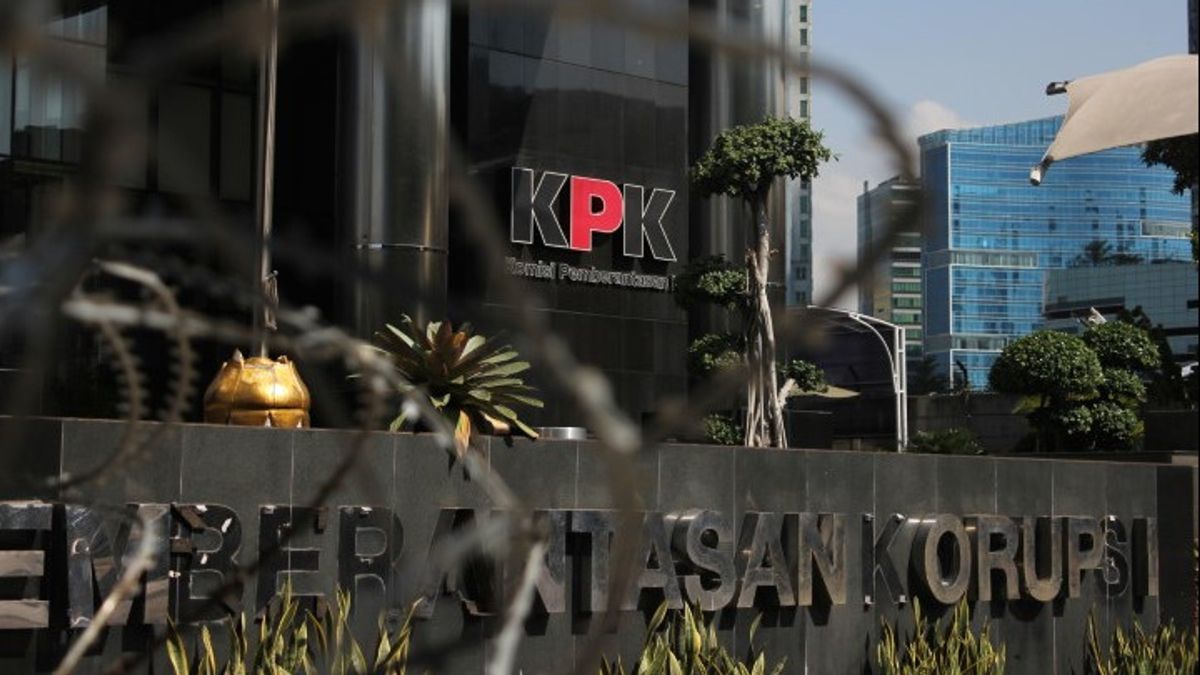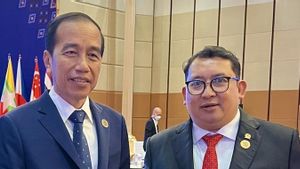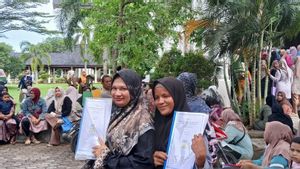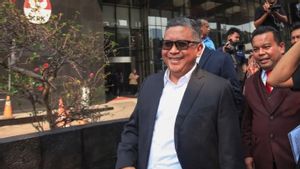JAKARTA - The attitude of the Corruption Eradication Commission (KPK) which is reluctant to follow up on the findings of the Indonesian Ombudsman regarding the implementation of the National Insight Test Assessment (TWK) is considered a form of defiance. President Joko Widodo (Jokowi) was asked to intervene to overcome this problem.
The KPK expressly objected to the final report of the Indonesian Ombudsman regarding the implementation of the TWK. This institution has sent a letter expressing its objection to the Ombudsman on Friday, August 6.
This attitude is regretted by a number of parties, including by senior KPK investigator Novel Baswedan who is now deactivated after failing to pass the TWK. He even said he was embarrassed to hear the press conference conducted by the Deputy Chairman of the KPK, Nurul Ghufron, to address the findings of the Indonesian Ombudsman.
According to him, the findings along with the corrective actions submitted by the Indonesian Ombudsman some time ago could be understood by the anti-corruption commission as a correction. However, in the press conference, the KPK seemed to have avoided its policies.
In addition, the KPK also seems not to care about serious problems in the implementation of TWK. This is what makes Novel consider Ghufron's statement so embarrassing and he feels concerned.
"I myself feel concerned about the problem that was conveyed by the KPK leadership yesterday. Mr. Ghufron, who conveyed it, actually avoided the problem, didn't want to know that there was a serious problem. Of course this is very embarrassing and I myself heard it was embarrassed," Novel said at a press conference in private. online, Friday, August 6th.
He then hoped that President Joko Widodo would not remain silent and pay attention to the condition of the KPK. Including, when they saw the disobedience of Firli Bahuri et al in the process of transferring the status of KPK employees.
This disobedience, he said, was clearly seen when the KPK leadership was reluctant to take corrective action from the Ombudsman as a follow-up to the findings of maladministration. In addition, Firli Bahuri et al have also ignored the decisions of the Constitutional Court (MK) and Jokowi's own orders.
"I hope the President sees this and will not allow such actions," said the senior investigator.
Similarly, Indonesia Corruption Watch (ICW) also assessed that the KPK's statement on Thursday, August 5, had shown disobedience. In addition, the KPK leadership is also considered to show an attitude of arrogance and shamelessness.
"This further shows the arrogance and shamelessness of the KPK leadership," ICW researcher Kurnia Ramadhana told reporters.
Even so, ICW was not surprised by the attitude shown by the KPK. The reason is that this has been clearly seen since KPK Chairman Firli Bahuri released 18 of his employees who did not pass the TWK and could still be fostered by participating in the National Defense and National Insight Education and Training.
Thus, Kurnia asked the Indonesian Ombudsman to immediately issue recommendations from the results of their reports and submit them to President Jokowi. "In addition, the President must act immediately by inaugurating 75 KPK employees as State Civil Apparatus," he said.
As previously reported, the Corruption Eradication Commission (KPK) has expressed objections and will not carry out any corrective actions submitted by the Indonesian Ombudsman after maladministration and abuse of authority were found in the TWK implementation process.
In its objection, the KPK considers the Ombudsman unfair in providing its recommendations. The anti-corruption commission also assessed that the Ombudsman did not respect their authority in carrying out the test as a condition for transferring their employee status to State Civil Apparatus (ASN).
As for the four corrective actions delivered by the Ombudsman, namely asking the KPK leadership to continue to transfer the status of Novel Baswedan and 74 other employees who were declared not to have passed the TWK to become State Civil Apparatus (ASN).
Next, the Ombudsman asked the KPK not to use TWK as the basis for the dismissal of 75 employees. Then, the anti-corruption commission was asked to carry out official education regarding national insight for employees who were terminated because they did not pass the TWK.
Finally, the KPK was asked to explain to its employees about the consequences of implementing TWK in the form of information or legal documents.
The English, Chinese, Japanese, Arabic, and French versions are automatically generated by the AI. So there may still be inaccuracies in translating, please always see Indonesian as our main language. (system supported by DigitalSiber.id)













